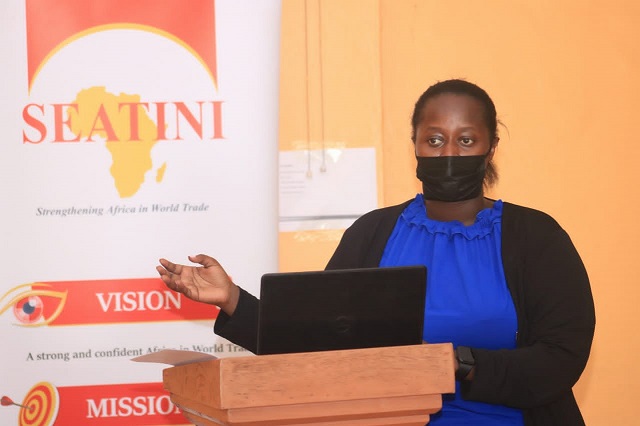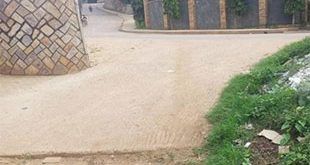
Kampala, Uganda | THE INDEPENDENT | We can protect ourselves and communities around us by not destroying the environment. It starts with you before looking at your neighbour.
Those were some of the words that Brenda Akankunda, the program officer in charge of investment for sustainable development at SEATINI Uganda told Kampala International University students last Friday who had gathered to listen to her and other environmental activists on how to keep the environment safe as climate change continues to be topical in many spaces.
A total of approx.200 students attended the half day event at Kansanga, a few kilometres out of Kampala city centre.
Akankunda told the students that some of the social impacts related to climate change include, food and water insecurity, loss of human life and extreme poverty.
The health impacts include new diseases that could emerge, water and sanitation and malnutrition challenges and loss of medicinal plants and more.
The other impact has to do with loss of some cash crops, reduced water for production, increased research costs and increased expenditures on food imports.
“It is your responsibility as young people to define our future on this matter,” she said.
Akankunda’s views directly connects with what international agencies line United Nations have always peddled.
The UN says, “individuals can plant or preserve trees around their home. If you own a business, start thinking about and planning around possible climate risks, such as hot days that prevent workers from doing outside tasks.”
The agency adds, everyone should be aware of the possibly greater potential for natural disasters where they live and what resources they have in case these happen. That might mean purchasing insurance in advance, or knowing where one can get disaster information and relief during a crisis.
The agency says, given the scale of climate change, and the fact that it will affect many areas of life, adaptation also needs to take place on a greater scale.
Similar arguments on climate change matters have rotated around the need for economies and societies to become more resilient to climate impacts which will require large-scale efforts, many of which will be orchestrated by governments.
“Roads and bridges may need to be built or adapted to withstand higher temperatures and more powerful storms. Some cities on coastlines may have to establish systems to prevent flooding in streets and underground transport. Mountainous regions may have to find ways to limit landslides and overflow from melting glaciers. Some communities may even need to move to new locations because it will be too difficult to adapt,” the UN says.
 The Independent Uganda: You get the Truth we Pay the Price
The Independent Uganda: You get the Truth we Pay the Price



